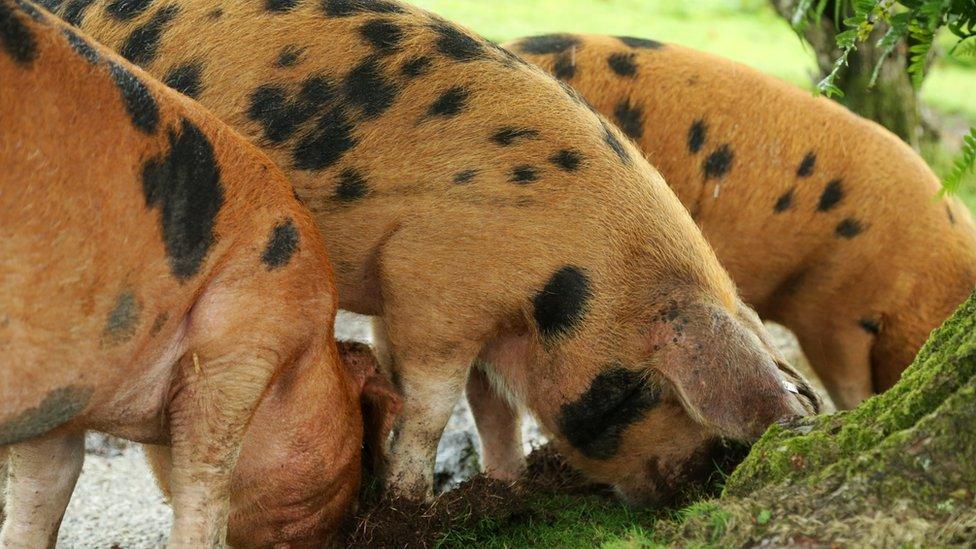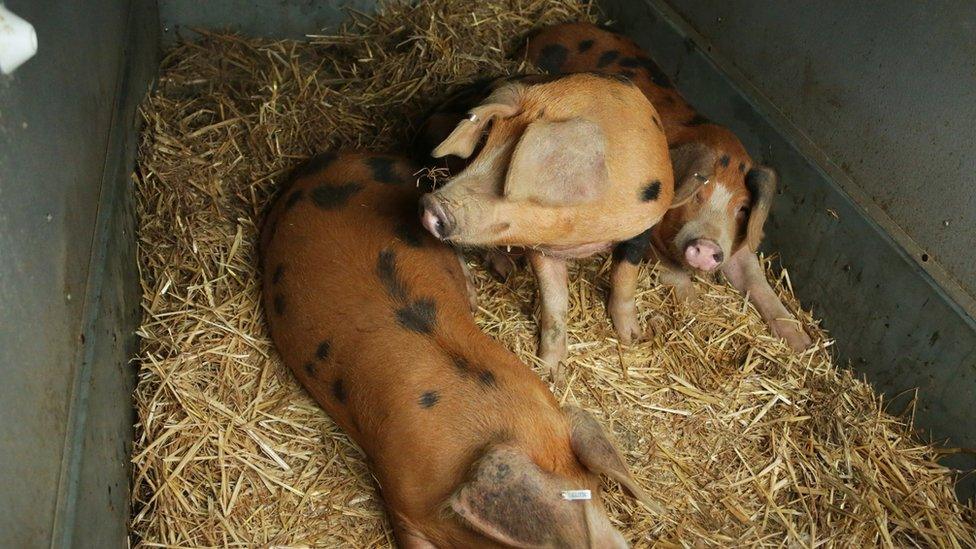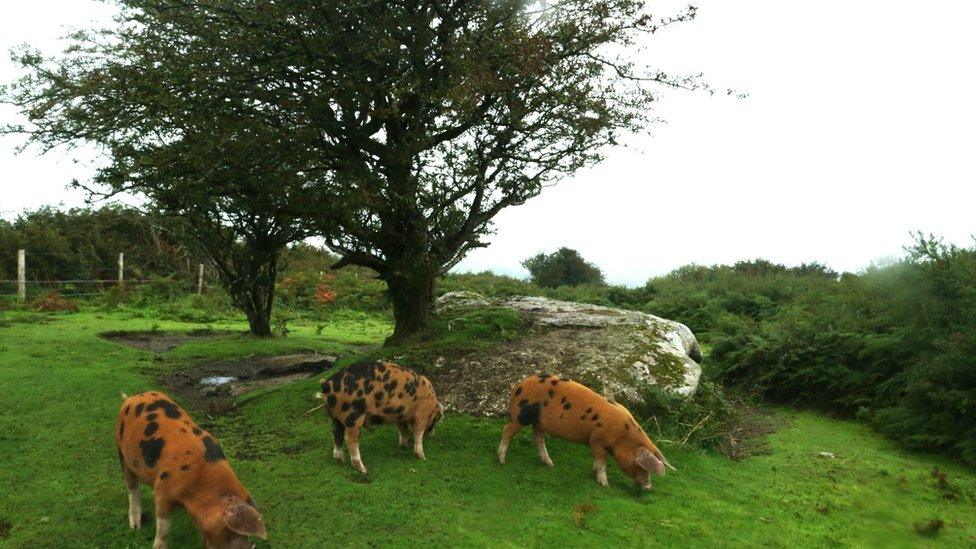Pigs released on Cornish moorland to help wildlife thrive
- Published

The trust said it was the first time pigs had been released on Cornish moorland
Three pigs have been released on a Cornish moor in a "rewilding" trial to control plants like bracken and help other wildlife flourish.
A farmer loaned the Oxford Sandy and Blacks to Cornwall Wildlife Trust to live on Helman Tor near Bodmin.
It is the first time pigs have been released on Cornish moorland, the trust said.
Andy Collins, Mid Cornwall reserves manager, described the pigs as "nature's plough".

The three pigs are a traditional native breed
He told the BBC: "No other animal has the rooting behaviour of pigs.
"With their noses they turn over earth, access roots, eating tubers, thick roots of plants and bracken."
Although poisonous to many animals, the carcinogenic materials in bracken can be broken down by pigs, he said, to prevent the plant from "dominating".
The pigs' rooting will also create "basking habitats" for invertebrates like adders, lizards, grass snakes and slow worms, as well as revealing seeds to create "foraging opportunities" for other wildlife including birds, he said.
Mr Collins said of the pigs: "They are a native breed so they've got all the naturalist traits which means they can deal with the rough terrain and they won't just stand at the gate looking lost."
He said the trial was aimed at introducing mixed grazing across Helman Tor to create a "mosaic of different habitats" without the need for intervention using tools like chainsaws.
Mr Collins added their wider plan was to introduce more cattle, pigs and ponies to the moors for a natural approach to broadening its diversity.

Cornwall Wildlife Trust is behind the scheme to control bracken
"With this trial release of the pigs we are looking at how existing infrastructure copes with them and that they are kept on site and not running into neighbours' gardens and that they are flourishing and not having welfare issues," he said.
The trial would also help them learn how much time the pigs should remain in the area before moving on, with the goal to release more pigs, and other animals like long-horned cattle, in future, he said.
"It's about reintroducing lost natural processes to help manage those lands," Mr Collins added.
"Historically we've tried to mimic those processes and we've never had pigs on our moor sites before so this is exciting, if a little bit stressful."
The pigs were loaned by a farmer working with the Real Food Garden.

Follow BBC News South West on Twitter, external, Facebook, external and Instagram, external. Send your story ideas to spotlight@bbc.co.uk.